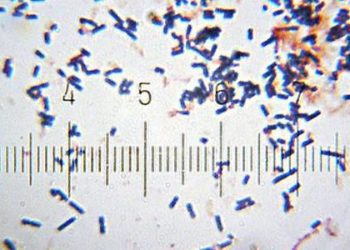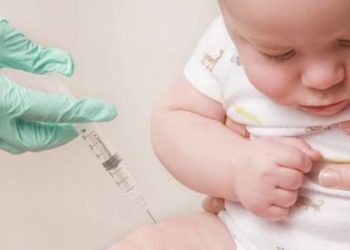Oral neonatal rotavirus vaccine RV3-BB effective in preventing severe gastroenteritis
1. Newborns receiving the oral human neonatal rotavirus vaccine (RV3-BB) with the first dose occurring either at birth or at 8 weeks experienced fewer cases of severe rotavirus gastroenteritis than those treated with placebo.
2. Incidence of serious adverse events was similar between vaccine and placebo treated infants.
Evidence Rating Level: 1 (Excellent)
Study Rundown: Rotavirus vaccines are quite effective at preventing gastroenteritis, though large numbers of infants across the world lack access. Oral vaccines administered at birth can possibly mitigate access challenges such as lowering cost and improving both efficacy and safety. A phase 2a study of RV3-BB has shown it provides protection from severe gastroenteritis, though longer term study is required for better assessment of RV3-BB efficacy and safety which this study seeks to address. The primary study outcome of severe gastroenteritis by 18 months of age was lower in children treated with RV3-BB starting both at birth and at 8 weeks compared to placebo treated patients. Vaccine response was high in vaccine treated patients, and incidence of adverse events was similar between vaccine and placebo treated patients.
Strengths of this study include assessment of immunologic response and analysis via both intention-to-treat and per-protocol methods. The reporting of adverse events in an unsolicited manner is a limitation of this study.
Click to read the study in NEJM
In-Depth [randomized controlled trial]: This phase 2a, randomized, placebo-controlled trial was conducted between 2013 and 2016 in Indonesia. Eligible infants (n = 1649) were healthy, between 0 and 5 days old, and weighed between 2.5 and 4.0 kg. They were randomized into neonatal schedule (n = 549), infant schedule (n = 550), and placebo (n = 550) groups. Three vaccine doses were administered at days 0 to 5, weeks 8 to 10, and weeks 14 to 16 in the neonatal group, and at weeks 8 to 10, 14 to 16, and 18 to 20 in the infant group. Follow-up in 96% of participants was done until 18 months. The primary outcome of severe gastroenteritis occurring by 18 months was 5.6% of placebo patients and 2.1% of the combined vaccine treated patients (vaccine efficacy, 63%; 95% confidence interval [CI], 34 to 80; p < 0.001). Vaccine efficacy against severe gastroenteritis was 75% in the neonatal group and 51% in the infant group. Efficacy against gastroenteritis of any severity by 18 months was 45% in the infant schedule group (95% CI, 12 to 69; p = 0.01). Vaccine response was 94% in the neonatal group and 99% in the infant group. Incidence of serious adverse events was similar across all three groups. One case of intussusception occurred in the infant-schedule group 114 days after the third dose.
Image: PD
©2018 2 Minute Medicine, Inc. All rights reserved. No works may be reproduced without expressed written consent from 2 Minute Medicine, Inc. Inquire about licensing here. No article should be construed as medical advice and is not intended as such by the authors or by 2 Minute Medicine, Inc.







